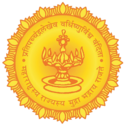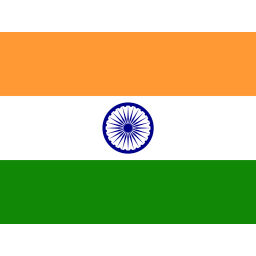Address by Governor at the VIII Convocation Ceremony of the Krishna Institute of Medical SciencesDeemed to be University, Karad
Address by Governor at the VIII Convocation Ceremony of the Krishna Institute of Medical Sciences Deemed to be University, Karad
Address by Shri CH. Vidyasagar Rao, Governor of Maharashtra at the VIII Convocation Ceremony of the Krishna Institute of Medical Sciences Deemed to be University, Karad at 1000 hrs on Friday, 10th May 2019
Dr Suresh Bhosale, Hon’ble Chairman and Managing Trustee, Krishna Charitable Trust, Karad, Dr Atul Bhosale, Hon’ble Chairman, Vithal Rukmini Mandir Samiti, Pandharpur, Dr Ved Prakash Mishra, Hon’ble Chancellor of Krishna Institute of Medical Sciences Deemed to be University, Mrs Neelima Malik, Vice chancellor, all other esteemed members of the Board of Management and Academic Council of the University, Dr M V Ghorpade, Registrar, Dr Mrs R K Gaonkar, Controller of Examination, distinguished guests, members of faculty, non-teaching staff, graduating students and recipients of various awards, parents and family members, media, ladies and gentlemen,
I am delighted to associate myself with the Eighth Convocation Ceremony of the Krishna Institute of Medical Sciences Deemed to be University.
The Krishna Institute of Medical Sciences is a tribute to the vision of philanthropist and social reformer late Shri Jaywantrao Bhosale, who started it, with the objective of providing access to quality healthcare and education to deserving students. It was a moment of great satisfaction when the Institute was awarded the Deemed University status in May 2005.
I am happy that this 35-year old medical college has carved a niche for itself as a nationally accredited ‘A’ grade institution offering MBBS and many other post graduate degree and diploma programmes in various disciplines.
It goes to the credit of the management, faculty and administration that the Institute today attracts students from all corners of the country and also from other countries of the world to pursue programmes in Medicine, Dentistry, Nursing, Physiotherapy, and other disciplines.
I was impressed to note that in keeping with the vision of the founding fathers, the Institute runs a 1125-bedded multi speciality tertiary care hospital offering the latest medical facilities to thousands of the poor and needy people of this region at affordable costs.
The Chairman Dr Suresh Bhosale, the Chancellor Dr Ved Prakash Mishra, and the Vice Chancellor Dr Mrs Neelima Malik deserve our wholehearted compliments for guiding the destiny of the institution with dedication.
My congratulations also go to the Board of Management whose members are instrumental in creating such a wonderful ambiance for holistic learning in the beautiful settings of the Institute. I also congratulate the faculty and staff for their sincere efforts and dedication in serving the institution and for keeping the flag of excellence flying high.
Dear Graduating students,
The Convocation is a day of fulfillment of the dream for all the graduating students. I share the joy of all those who are receiving their degrees, diplomas and certificates of merit today.
I also convey my felicitations to the parents and teachers who have played an important role in your journey so far.
Ladies and gentlemen,
India was under colonial rule for nearly three Centuries. Towards the end of the colonial rule, the life expectancy in India had fallen to just about 30 years. One person died every minute of tuberculosis. One in four babies died in the first year. Cholera, smallpox and polio – several epidemics and diseases were rampant.
During the last 72 years since attaining Independence, India has made impressive progress in improving the standards of living of our people. Revolutions in our economy, in agriculture and in technology have altered the lives of the people for the better. As a result, our health outcomes have improved significantly. Diseases such as polio and smallpox, which once claimed so many lives, have been conquered. Maternal mortality and infant mortality rates have come down drastically. The life expectancy in India has touched a respectable 70 years.
Nothwithstanding these positive developments, there remain regional, rural-urban and gender and community imbalances in terms of health provision. Even in a progressive State like Maharashtra, we have the problem of medium to acute malnutrition in tribal-dominated areas. The challenge for all of us, and especially for the medical fraternity, is to reach out to the most marginalized sections of society and make quality health care affordable and accessible for the common people.
As you get ready to step in to the world of medical service or advanced education or research, you must remember that we have a long way to go in reducing the burden of communicable diseases such as tuberculosis, vector-borne diseases such as malaria, water-borne diseases such as cholera, diarrhoeal diseases, and vaccine-preventable diseases like measles and tetanus.
Secondly, India is emerging as the capital of lifestyle diseases in the world, especially diabetes and cardiovascular diseases. It is estimated that one-third of the global diabetic population is Indian.
By 2030, India’s diabetes burden alone is expected to cross the 100 million mark. One million Indians die every year due to diabetes related complications.
As members of medical fraternity, you will be called upon to view diabetes as a major challenge and find ways and means to address it in a holistic manner.
A very pertinent issue was raised by Dr Yusuf Hamied, Chairman of Cipla, during a talk in Mumbai, which was reported by a leading newspaper. Dr Hamied warned that Antimicrobial resistance caused by indiscriminate use of antibiotics would be the next big health crisis. I do feel that the medical fraternity should take note of this observation.
Dear Graduating Students,
India is emerging as the most youthful nation in the world by 2020. However, we cannot and must not ignore the fact that India’s elderly population is also growing rapidly.
According to the 2011 population census, India has hundred and four million elderly people having age of 60 and above. India’s population is expected to rise from 1.3 billion today to an estimated 1.7 billion by 2050 surpassing China. It is expected that India will have 340 million elderly people in the year 2050. Which means, India alone will have an elderly population which is more than the total population of the United States of America!!
With elderly population increasing steadily, there will be a growing threat of chronic diseases. We need advice and recommendations from the medical fraternity to address the challenge of health issues of the elderly people so that we may be able to improve the quality of their life. So far, we have heard of Children’s Hospitals. India will need Hospitals exclusively for the Elders in the years to come.
Ladies and gentleman,
The Minister of Health, Government of India informed Parliament last year that India has only 0.62 doctors, which means, less than one doctor per 1000 population. In contrast, Russia has 3.3 doctors per 1000 people, France has 3.32 doctors and Germany has 4.12 doctors per 1000 people. Even this small number of doctors would have been adequate to meet the requirements of our people. However, the problem is, very few doctors practice in small towns and villages. There are thousands of villages that do not have a single doctor.
India must therefore harness the power of telemedicine, mobile dispensary and most importantly Artificial Intelligence.
China is trying to overcome its shortage of physicians by combining big data and artificial intelligence (AI). Patients enter their personal data, medical history and describe their symptoms to an AI-assisted “receptionist” on a mobile App that transfers the information to a real-life doctor for a diagnosis.
This devise relieves doctors from doing the routine, simple, and repetitive work. As doctors in the new era, you must acquaint yourselves with the emerging changes.
Dear friends,
‘Social Media’ has emerged as the most influential doctor during the last few years ! Several health related messages written by self-appointed doctors are circulated freely on the social media, and people are consuming these messages without verifying their authenticity.
Quite often, ‘Dr Social Media’ is giving wrong prescriptions and misleading advice to the people.
As doctors, you must prevent and expose such bogus messages immediately. It will save at least a few more lives !
Dear Graduates,
The doctor-patient relationship is central to the practice of healthcare and in the diagnosis and treatment of the disease. The nature of relationship determines the success of the treatment.
A doctor must have compassion for the suffering person. Suffering could be due to either real illness or imaginary. Both need delicate handling of the patient. With good communication, we can certainly bring smile on the face of patients and their dear ones.
In the distant past, India has done path-breaking work in field of medical science. The Sushruta Samhita, authored by sage Sushruta is considered to be the most comprehensive Sanskrit treatise on medicine and surgery. Charaka authored the Charaka Samhita on the ancient science of Ayurveda. Time has come to build a bridge between our glorious past and the modern present.
The Krishna Institute of Medical Sciences is one of dynamic medical education institutions. I wish to see the Institution becoming an institution of national eminence by laying utmost thrust on quality education, research, citizen outreach programmes and innovation.
I was actually looking forward to be with you all and to present Degree Certificates and Certificates of Merit to top prize winners in person. I request you to visit Raj Bhavan, whenever you are in Mumbai. The Vice Chancellor may bring the top prize winners from the Institute to meet me at Raj Bhavan. The Gates of Raj Bhavan are always open for you.
With these words, I congratulate all the graduating students of the Krishna Institute of Medical Sciences Deemed to be University and I wish you glorious future in the service of humanity.



